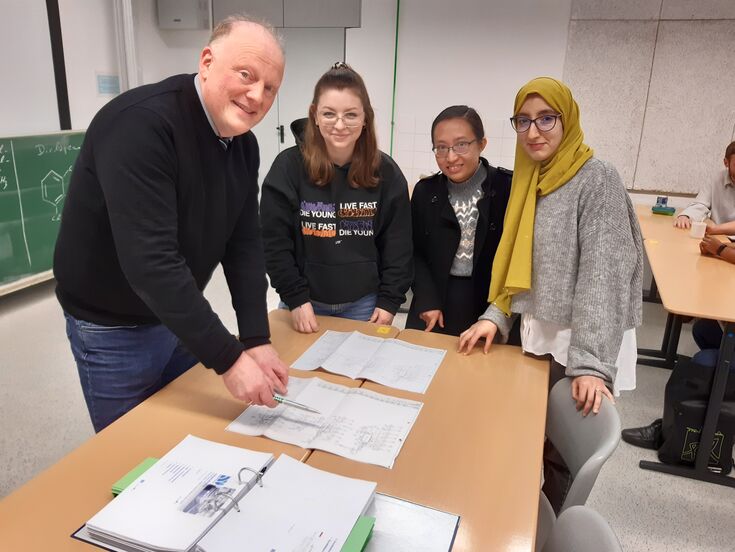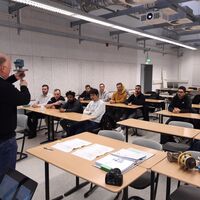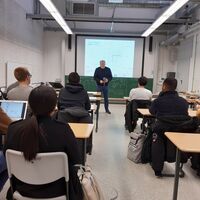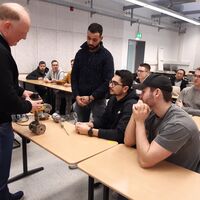At times, German pharmacies were short of more than 300 medicines - and that in the middle of the flu epidemic. Students from the Faculty of Chemistry at the Hochschule Niederrhein have now devoted themselves intensively to this problem. The result: a detailed concept for a plant that could solve several problems at once.
Because raw material prices and labor costs in the USA and especially Asia are significantly cheaper than in Europe, many pharmaceutical manufacturers prefer to outsource production. This dependence has consequences: Because of supply bottlenecks there, the shelves in many pharmacies in this country also remain empty.
Even if production facilities that had been shut down in Europe were reactivated and domestic capacities were ramped up again: The effort is enormous and very expensive. Many plants now concentrate on other sought-after active ingredients - or are so outdated that they would have to be replaced by modern technology.
Twenty Master's students in Technical Chemistry have found an answer to the question of what this technology should look like and how it should be used effectively. Under the supervision of Professor Dr.-Ing. Heyko Jürgen Schultz, they have developed a sophisticated concept for a multiproduct plant as part of a seminar that focuses on problem-based learning. It can produce at least four active ingredients as tablets or liquid fever medicine.
The project group has planned with paracetamol, aspirin, diclofenac and ibuprofen. The special feature of this chemical plant is that it is to produce at least twice the amount of what Germans consume each year - in order to be able to supply large parts of Europe. It would be possible to produce 360,000 tablets and 2700 liquid fever medicine bottles per hour.
The plant is also to be designed in such a way that it can be expanded on a modular basis for other scarce active ingredients. The high degree of automation could save well over 20 percent in personnel, estimates Schultz.
The key is that special, modern measuring devices in the lines and reactors are designed to detect, report and automatically control any abnormalities in temperature, pressure, electrical conductivity or composition at an early stage in the production chain.
With the aid of a modern process using near-infrared and Raman spectroscopy, mixtures of substances can be analyzed - online during the production process. This sophisticated analytical procedure saves lengthy transport routes to the laboratories - and thus time. "This does not yet exist to the extent planned. We are constantly collecting data, can call it up at any time and use it for process optimization," says Heyko Jürgen Schultz.
This takes into account the issues of sustainability and Energy Efficiency: If defects are detected at an early stage, the affected batch can still be improved in the course of production. This means that energy and raw materials are not wasted, but used effectively and in a targeted manner. Product yields are higher, and rejects are minimized.
"We have excellently trained chemists and chemical engineers at our university who have carried out detailed planning, including documentation for plant approval," praises Schultz. He is sure: For companies, the feasibility study could be a good template to implement such a plant. "I am convinced that it is financially feasible," says Schultz, who himself worked in the chemical industry for many years.





















